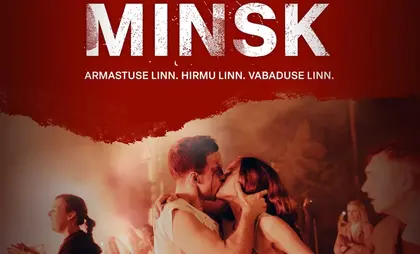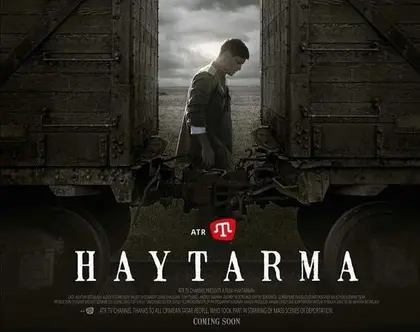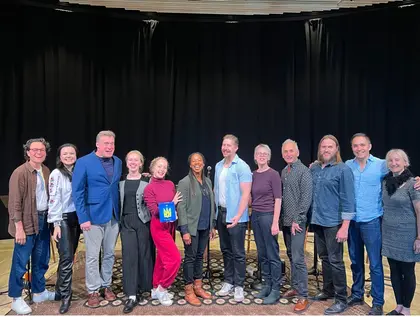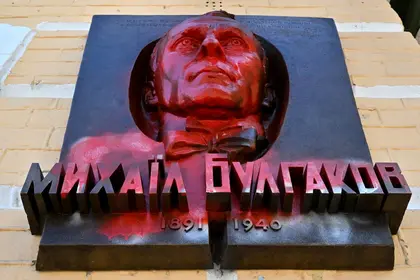It can
currently be viewed at the Zhovten cinema in Kyiv, albeit only in Russian and
Crimean Tatar, with Ukrainian subtitles. The producers plan to translate the
movie into English and Turkish, but no specific dates have yet been mentioned.
With a budget
of around $1.5 million, the film was shot by Crimean Tatar ATR TV channel based
on the real life story of Crimean Tatar national Amet-Han Sultan, a Second
World War military pilot twice honored as a Hero of the Soviet Union for
shooting down 30 enemy planes solo and 19 more with others.
Being
granted a short leave Sultan came to visit his family in the Crimean city of Alupka
and witnessed the deportation of his nation, which he managed to evade only
thanks to his extraordinary military merits.
On May
18-20, 1944, some 183,155 Tatar civilians and were transported by force from
Crimea to Uzbekistan, Kazakhstan, Tajikistan and some regions of Russia for allegedly
collaborating with the Nazi invaders. After the end of war almost 9,000 war
veterans of Crimean Tatar nationality joined them. Entire regions in southern
and central Crimea were emptied and resettled by mostly Russian and Ukrainian
newcomers.
Nonetheless,
“Haytarma” avoids blanket accusations against Soviet Army soldiers, and shows
that even some secret police (NKVD) officers opposed the repressive system. In
the movie the Tatars hail the Soviet regime and raise their glasses to the health
of Soviet leader Josef Stalin. That’s why Sultan first thinks the Soviet
soldiers, who came for his parents, are enemy spies.

Film Exposes Bloody Protests of Lukashenko Regime
Yet the
film has still ruffled feathers. Russian Consul Vladimir Andreyev called on World
War II veterans to ignore the premiere of the movie, which took place in
Simferopol on May 18, the official mourning day for victims of the deportation.
Unsurprisingly, Andreyev’s comments bitterly offended the Tatar community and
sparked mass protests that resulted in his dismissal.
For all its
merits, however, the film is no masterpiece, notably in its attempts to combine
a documentary with a Hollywood blockbuster.
Sultan’s
feats seem over the top: when he lands his war plane in Alupka to impress
relatives, when he alone defeats in melee combat four armed Soviet soldiers, or
when he runs miles to Bakhchisaray to catch up with trucks carrying detained
Tatars to the train station. His friend, played by a Ukrainian actor, is also
quite unconvincing in his role as a French pilot.
At the same
time it was definitely better than most of full-length films made in modern
Ukraine. The picturesque views of the Crimean Mountains or a scene where Sultan
tenderly whispers to his plane before a flight to a soundtrack of Tatar folk
music make “Haytarma” really memorable.

The massive
and powerful scenes of deportation, with a mother forced to leave her newborn
child, old men shot dead after they refused to leave their homeland, children lifted
to the tops of train carriers so that they could catch some fresh air or a
woman giving birth on the train floor moved many spectators to tears.
Crimean
historians say that by 1956 almost half of the Crimean Tatars (46.2 percent)
died in foreign lands in harsh living conditions. It wasn’t until 1989, when
Soviet policy relaxed, that remaining Tatars were allowed to go back to their
native Crimea.
The movie
makers wrote on the film’s official Facebook page: “The purpose of creating
this film is to allow everyone to understand the anguish, fear, oppression,
terror, and torment that our people have faced.” If so, they definitely achieved
their purpose.
Where to see:
Zhovten
cinema (http://zhovten-kino.kiev.ua): 14:40 and 17:55, prices Hr 25-35.
The film is screened in Russian and Crimean Tatar with Ukrainian subtitles.
Kyiv
Post staff writer Oksana Grytsenko can be reached at [email protected]
You can also highlight the text and press Ctrl + Enter







Comments (0)